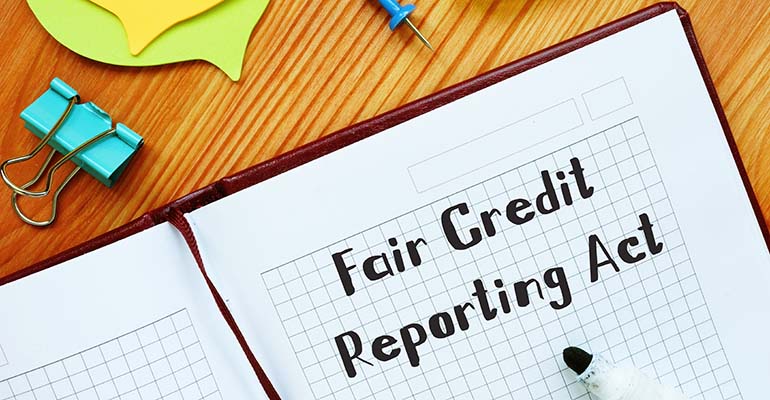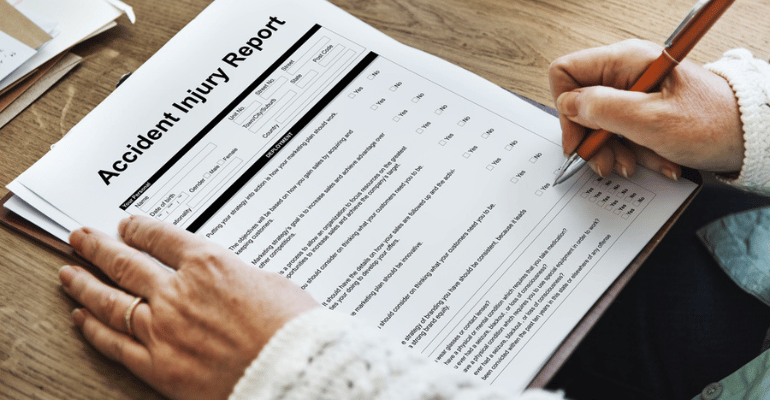
Fair Credit Reporting Act Violations: What You Need to Know
Fair Credit Reporting Act violations affect the lives of job seekers, employees, and their families, and they can cause financial difficulty, career upheaval, and disrupt your overall quality of life. Fortunately, the Fair Credit Reporting Act (FCRA) offers individual protections backed by the federal government’s power. These protections give job seekers and employees the ability to hold employers accountable for violations of the FCRA.
Do you believe you have been denied a job due to a background check? The potential employer must abide by the requirements of the FCRA. If they have not, you may have a case. Fair Credit Reporting Act violations penalties can be severe and are in place to ensure compliance — or face the consequences.
Did a background check from a current employer affect your promotion or reassignment for you? Or did you get terminated from your job due to a background check? The same rules apply to job seekers and current employees. Understanding FCRA requirements, violations, and penalties are central to the pursuit of justice.
Fair Credit Reporting Act Violation Penalties
What Is the FCRA?
The FCRA (Title VI of the Consumer Credit Protection Act) protects information collected by consumer reporting agencies and ensures the fairness, accuracy, and privacy of that information for people in Florida and across the United States. Under the FCRA, there are regulations on how agencies – and employers or potential employers – can access, collect, share and use the data in your credit report/background check.
The Federal Trade Commission (FTC) and the Consumer Financial Protection Bureau (CFPB) are the two federal agencies in charge of overseeing and enforcing FCRA guidelines.
What are the Penalties?
Fair Credit Reporting Act violations penalties can be imposed on companies or individuals. If plaintiffs win FCRA violation cases, the penalties can include damages that the individual suffered because of the defendant’s actions, fines, orders to alter practices in conducting background checks/credit reports, and additional damages for legal fees.
FCRA Violations List
The FCRA violations list is composed of two types of Fair Credit Reporting Act violations:
1) Willful Noncompliance — this occurs when a company takes an action that they know violates the requirements of the FCRA. Ex: a company using inaccurate data from a credit report to decide on a promotion for an employee after the employee provides documentation that the information is inaccurate
2) Negligent Noncompliance — occurs when a company inadvertently – as opposed to intentionally – violates the requirements of the FCRA, which could include any of the FCRA requirements listed below.
FCRA Requirements
FCRA requirements are broad-reaching and detail strict guidelines in how your credit and background information is accessed, used, and shared. If companies do not follow these requirements, they could be liable for Fair Credit Reporting Act violations and face individual or class action lawsuits.
Here are FCRA requirements that protect job seekers, employees, and consumers:
- Information in a consumer report cannot be provided to anyone who does not have a purpose specified in the Act — giving a person access to their personal information but limiting access to others. This is referred to as an FCRA permissible purpose, which includes creditors, potential employers, and employers, among others.
- The individual must give written consent to the employer if they want to see your credit report.
- An employer must tell a job applicant that if they perform a background check, the information received may be used to make an employment decision.
- Employers are bound by the FCRA to allow an applicant/employee a reasonable period of time, typically about five business days, to review the report and dispute any inaccuracies. They are not allowed to simply reject the applicant for a job or an employee for a promotion based on information on a background check. You must be notified of these rights in what is referred to as a pre-adverse action notice.
- If adverse action is taken, such as deciding not to hire someone because of information contained in a background check, the company must notify the individual.
Additionally, the FCRA gives individuals the right to request and have access to the information of a credit reporting agency which is shared with potential employers and employers. There are varying ways you can obtain that information, including one free “file disclosure” each year at each agency at www.annualcreditreport.com.
Can I Sue?
If you have been denied employment, a promotion, or reassignment because of information the company received from a background check, that does not mean you can automatically sue. There needs to be willful noncompliance or negligent noncompliance present in your situation to pursue legal action.
You may be able to sue in state or federal court if a prospective employer or current employer fails to abide by the FCRA guidelines, thereby committing Fair Credit Reporting Act violations. If the employer has been violating FCRA guidelines as a consistent practice, either in the hiring process or when determining if they are going to promote or reassign current employees, there could potentially be legal action taken in the form of a class-action lawsuit.
It is advisable to contact an attorney to determine your best legal options. You may be entitled to damages due to adverse actions taken against you.
Why Contact A FCRA Attorney
FCRA violations are serious – and employers should be held accountable. You have the right to justice. If you feel your rights have been violated, you should consult an FCRA attorney. They have the experience and skill to investigate your situation to determine if willful noncompliance or negligent noncompliance of the FCRA occurred.
At Wenzel Fenton Cabassa, P.A., we have tough litigators passionate about pursuing justice. We know how to stand up to companies when they affect the livelihoods and careers of job seekers and employees. We have helped thousands of people whose rights have been violated by companies, and we can help you.
Contact us today to schedule a free, confidential consultation.
Offices are available in Tampa, St. Petersburg, Sarasota, Miami, Jacksonville, West Palm Beach, and Orlando for your convenience.
Please Note: At the time this article was written, the information contained within it was current based on the prevailing law at the time. Laws and precedents are subject to change, so this information may not be up to date. Always speak with a law firm regarding any legal situation to get the most current information available.








